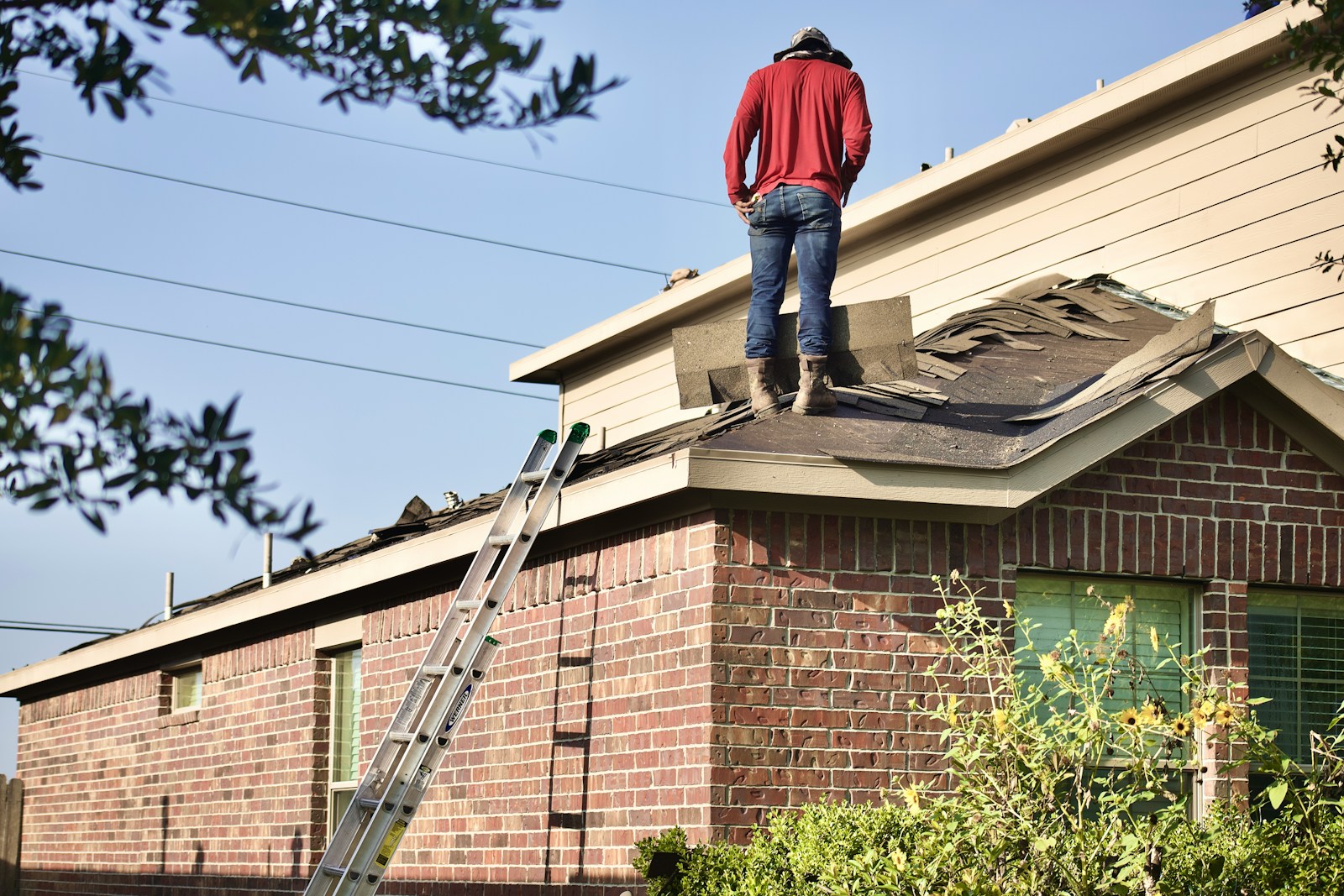Flood Insurance in Roseville, CA
Water may seem harmless in small amounts, but floods can unleash torrents of trouble for your property and financial interests. Whether you’re a homeowner, renter or business proprietor, these natural disasters should be a top priority within your risk management and loss control efforts. Even a small amount of floodwater can cause extensive damage, and without suitable insurance coverage, you’d potentially face catastrophic financial consequences.
What Is Flood Insurance? 
Flood insurance is a specialized form of coverage tailored specifically to address losses arising from rising and external water. Whether arising from plentiful precipitation, rising rivers, damaged dams or other situations, your policy can make all the difference in financially protecting you from extensive out-of-pocket losses.
Who Needs Coverage?
Many policyholders may mistakenly think floods are covered under standard homeowners, renters and commercial property insurance. In fact, these natural disasters are often explicitly excluded from coverage, necessitating alternative measures. Fortunately, separate flood insurance policies can address this coverage gap.
No sweeping laws require flood insurance, but you may need to fulfill other obligations. For example, if your mortgage is federally supported and you live in a high-risk flood area, you’ll likely need to retain coverage until you’ve paid off your loan. Additionally, if you’ve previously received flood-related aid from the Federal Emergency Management Agency, coverage is required to maintain eligibility for future funds.
What Does My Policy Cover?
Flood insurance policies can cast multifaceted financial protection for insured properties, including for the following losses and expenses:
- Structural damage, such as that involving floors, foundations, walls and electrical systems
- Personal possession losses, such as if furniture and electronics are damaged or swept away
- Cleanup costs, such as if floods leave behind debris or contaminated materials
How Are Costs Determined?
Your premiums may be calculated using a comprehensive analysis of your property’s details and unique circumstances. Specifically, insurers often consider the following criteria:
- Location
- Structural specifications (e.g., number of floors, building materials used and age)
- Estimated rebuild cost
- Topographical details
- Coverage limits
- Deductible
- Claims history
We’re Here to Help
Water may seem harmless in small amounts, but floods can unleash torrents of trouble for your property and financial interests. Whether you’re a homeowner, renter or business proprietor, these natural disasters should be a top priority within your risk management and loss control efforts. Even a small amount of floodwater can cause extensive damage, and without suitable insurance coverage, you’d potentially face catastrophic financial consequences.
What Is Flood Insurance?
Flood insurance is a specialized form of coverage tailored specifically to address losses arising from rising and external water. Whether arising from plentiful precipitation, rising rivers, damaged dams or other situations, your policy can make all the difference in financially protecting you from extensive out-of-pocket losses.
Who Needs Coverage?
Many policyholders may mistakenly think floods are covered under standard homeowners, renters and commercial property insurance. In fact, these natural disasters are often explicitly excluded from coverage, necessitating alternative measures. Fortunately, separate flood insurance policies can address this coverage gap.
No sweeping laws require flood insurance, but you may need to fulfill other obligations. For example, if your mortgage is federally supported and you live in a high-risk flood area, you’ll likely need to retain coverage until you’ve paid off your loan. Additionally, if you’ve previously received flood-related aid from the Federal Emergency Management Agency, coverage is required to maintain eligibility for future funds.
What Does My Policy Cover?
Flood insurance policies can cast multifaceted financial protection for insured properties, including for the following losses and expenses:
- Structural damage, such as that involving floors, foundations, walls and electrical systems
- Personal possession losses, such as if furniture and electronics are damaged or swept away
- Cleanup costs, such as if floods leave behind debris or contaminated materials
How Are Costs Determined?
Your premiums may be calculated using a comprehensive analysis of your property’s details and unique circumstances. Specifically, insurers often consider the following criteria:
- Location
- Structural specifications (e.g., number of floors, building materials used and age)
- Estimated rebuild cost
- Topographical details
- Coverage limits
- Deductible
- Claims history
We’re Here to Help
Contact S & G Mitchell Insurance Agency today to compare flood insurance options available near you or get a free quote.
Contractors Insurance inRoseville, CA
Contractors insurance encompasses a range of policies designed to safeguard construction professionals and their businesses from various risks inherent in their line of work. Such coverage is vital for contractors as it provides financial protection against unforeseen circumstances that could otherwise result in substantial losses. By mitigating risks and liabilities, contractors coverage not only safeguards the contractor’s livelihood but also instills confidence in clients and stakeholders, fostering trust and facilitating smoother project execution.
What Is Contractors Insurance? 
Contractors risk insurance, also known as contractors liability insurance or builders risk insurance, is a type of insurance coverage designed to protect construction projects and contractors from financial losses due to various risks during construction. This insurance typically covers damages to the structure being built, as well as materials, equipment and supplies on-site.
Why Do Contractors Need Insurance?
Contractors policies offer crucial protection for professionals in the construction industry. Insurance for contractors secures legal compliance, assists with risk management and ultimately offers peace of mind by mitigating potential financial and legal liabilities.
Who Needs Contractors Insurance?
Some of the most common professions that may need contractor insurance include the following:
- Construction
- Carpenter
- Plumber
- Electrician
- Landscaper
- Painter
- Handyperson
- HVAC technician
- Floor installers
- Mason
What Does Contractors Insurance Cover?
The following are some of the most common types of insurance used by contractors:
- General liability insurance
- Workers’ compensation insurance
- Commercial auto insurance
- Contractors equipment insurance
- Builders risk insurance
- Professional liability insurance
- Surety bonds
The specific insurance needs of a contractor depend on factors such as the nature of the work, the size of the business, regulatory requirements and contractual obligations. Contact S & G Mitchell Insurance Agency to work with insurance professionals who understand your industry. We can evaluate your risks and suggest suitable coverage options.
Business Insurance in Roseville, CA
Regardless of sector or size, a business’s operations, finances and mission can be abruptly derailed by accidents or errors. Even if you take all the necessary steps to mitigate risks and exposures to keep your workplace safe, a single mistake or lapse in attention can have dire consequences. All businesses need to assess potential hazards and minimize risk levels by maintaining a sufficient insurance portfolio.
How Does Business Insurance Work?
In general, business insurance does not refer to a single specific policy. Most companies combine several types of coverage to form a robust and diverse safety net that can provide financial protection from many common risks. After compiling this insurance package, businesses must ensure their coverage remains active by paying regular premiums (e.g., monthly, annually).
What Business Insurance Do I Need?
Although many businesses may have unique risks and exposures, several types of coverage are advisable for most companies. For an adequate insurance portfolio, it’s a good idea to begin by purchasing the following core coverages:
- General liability insurance—This coverage focuses on financially protecting a business if it is found liable for third-party losses arising from the following incidents:
- Bodily injury
-
- Property damage
-
- Personal and advertising injury (e.g., slander, libel, copyright infringement, false advertising)
- Commercial property insurance—This coverage can help policyholders recoup losses sustained by a company’s physical property, such as the following:
- Structures
- Equipment
- Inventory
- Furniture
- Signage
- Landscaping
- Business interruption insurance—This coverage may provide financial assistance for costs arising from a temporary pause in a business’s regular operations, including the following:
- Rent/mortgage payments
-
- Lost income
-
- Employee payroll
-
- Tax and loan payments
-
- Temporary relocation
- Workers’ compensation insurance—This coverage is required by law for most employers and can help pay for the following expenses resulting from work-related illnesses and injuries:
- Medical treatment
-
- Lost or reduced wages
-
- Disability benefits
-
- Death benefits
-
- Legal costs (e.g., representation, judgments, settlements)
In addition to the aforementioned policies, it’s also essential for employers to analyze their operations and determine if additional insurance may be necessary to fill any coverage gaps. Common enhancements for a business’s insurance portfolio may include the following:
How Much Business Insurance Do I Need?
A business’s insurance needs may vary significantly. Company leaders should take time to assess risks and exposures and ensure that a business insurance portfolio satisfies the following potential needs:
- Commercial auto insurance protects a business financially if vehicles used for company operations are involved in accidents or otherwise sustain damage.
- Cyber liability insurance can provide crucial financial resources in response to a data breach or other cyber incident.
- Errors and omissions insurance may help pay for losses if a policyholder is accused of making a professional error, such as providing goods or services that were inadequate, incomplete or late.
- Employment practices liability insurance may insulate an employer from losses if a current, former or prospective employee files a lawsuit alleging improper workplace etiquette, such as discrimination, harassment or wrongful termination.
- Commercial umbrella insurance can provide secondary coverage if the liability limits of other policies, such as general liability and commercial auto, are exhausted.
How to Get Business Insurance
At S & G Mitchell Insurance Agency, our experts are well-equipped to help your business assess its coverage needs and address them with optimal policies. We will thoroughly analyze your company’s risks and exposures, and ensure that you are protected with optimal insurance solutions. Contact us today to get started.
Auto Insurance in Roseville, CA
Driving in Roseville, California, provides the freedom to explore its scenic surroundings. However, with this freedom comes the risk of accidents, theft and other unexpected events. Auto insurance is often needed to fulfill legal requirements and as an essential safeguard against financial loss and liability.
S&G Mitchell Company is a trusted provider of ideal auto insurance solutions. With a focus on personalized service and competitive rates, we can ensure you have the right coverage to stay protected on the road. 
What Does Auto Insurance Cover?
Auto insurance can cover a range of incidents by including various protections, such as the following:
- Liability coverage may protect you if you’re at fault in an accident, covering bodily injury and property damage to others.
- Collision coverage may pay for damage to your car caused by a collision with another vehicle or object.
- Comprehensive coverage may cover non-collision-related incidents like theft, vandalism, natural disasters and more.
- Medical payments coverage may cover medical expenses for you and your passengers following an accident, regardless of fault.
- Uninsured/underinsured motorist coverage may protect you if you’re involved in an accident with a driver who lacks sufficient insurance.
How Does My Policy Work?
Auto insurance works on a premium-based system where you pay a regular premium to your insurer, and in return, they can provide financial protection for covered incidents. If an accident or other covered event occurs, you file a claim, and the insurance company evaluates the damage. Your carrier can compensate you based on your policy terms if your claim is approved.
Why Is Coverage Important?
Auto insurance is essential as it can provide financial protection, helping you avoid significant out-of-pocket expenses after an accident. It can also offer peace of mind, knowing you’re covered against various risks. Furthermore, California drivers are required to maintain proof of financial responsibility, which is typically fulfilled through an adequate auto insurance policy.
Where Can I Purchase Coverage?
If you own a car near Roseville, California, S&G Mitchell Company agents are here to help you explore auto insurance options and select the right coverage for you and your vehicle. Contact us today for more information.
